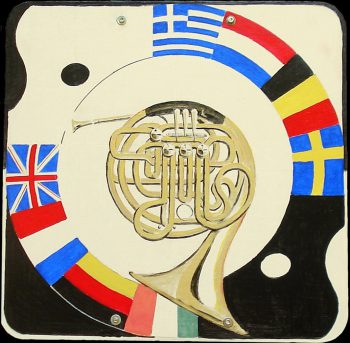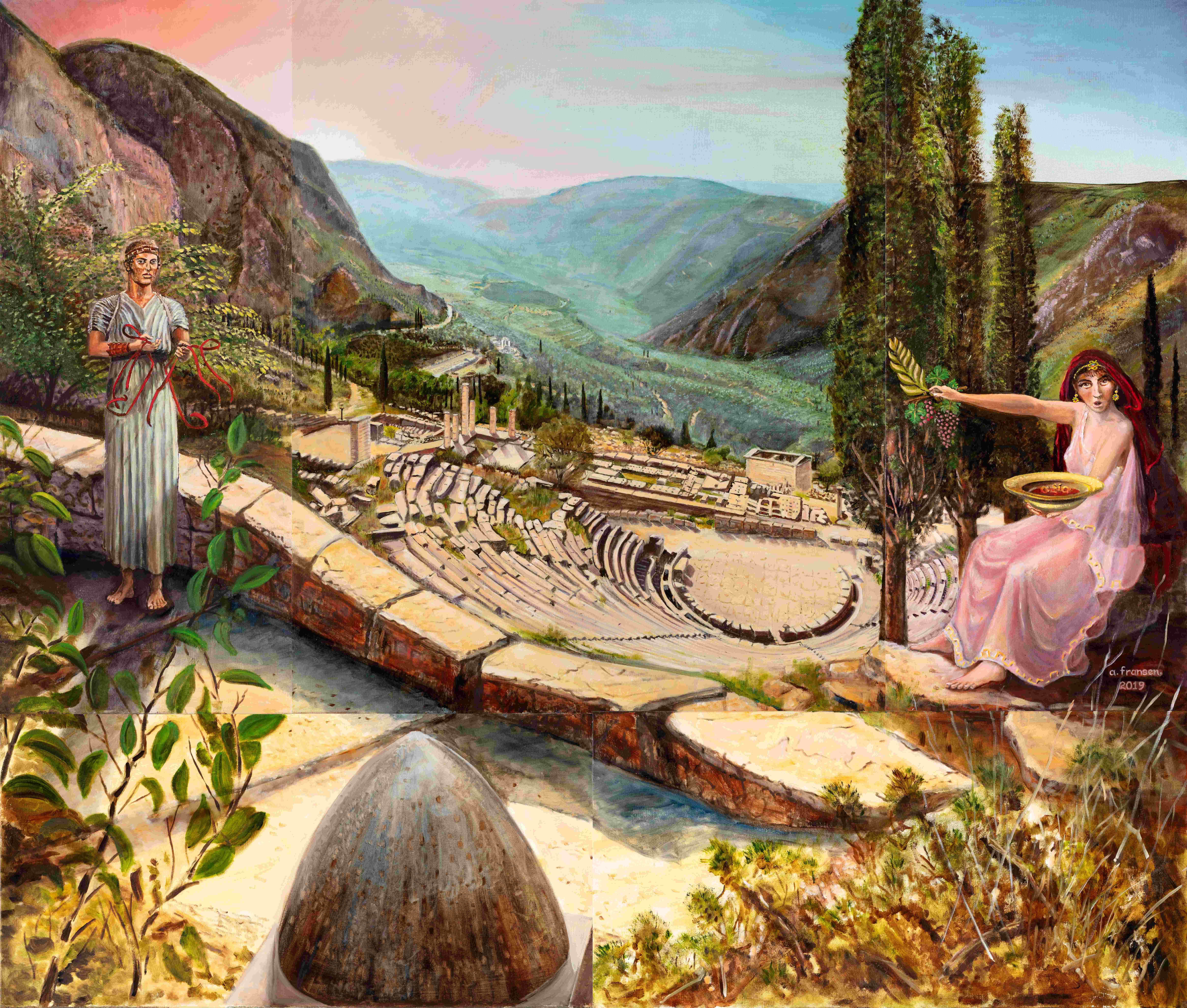An oracle from Delphi.
Somewhere within the cella of the now decayed temple, in or under the adyton, the Pythia used to give a glimpse into the future. She was sitting on a tripod above a crack in the floor and was a highly respected phenomenon for more than a thousand years! What nonsense, you would think.
Nine months a year, the oracle on the Parnassus was dedicated to the Greek god Apollo, the dignified god of medicine, the measure-keeping muse, and light. The other three (winter) months the Greek god Dionysos ruled over Delphi, the god of wine of course, but more generally of the exuberant vigour of the earth, of the delirious muse, and of theatre.
This painting is about moral duality, ambiguity and transience.
Reminiscence:
- Στο περιγιάλι (Sto Perigiali), ‘At the beach (the coast)’, performed by Maria Farandouri after a poem by Yorgos Seferis, with music composed by Mikis Theodorakis.
» Read more
We are looking at what remains of the cultural centre of the ancient world.
Depicted on the left is a charioteer, after the famous bronze statue from 478 BC, now in the local museum. His stature is characterized by a proud attitude, yet his reins are broken. Has he lost control, does his proud attitude represent a theatrical rejection of the prevailing mores, or does he point to something else? On the right-hand side, while giving us a firm look and vehemently gesturing, the Pythia shows us a (sacrificial) dish containing wine and the call for axía. The Ancient Greek word axía, which still exists in Modern Greek, translates as ‘(monetary) value’, ‘worth’, ‘honor’, ‘dignity’ as well as the highly ambiguous ‘merit’, which can refer to wages, but also to punishment.
Plato speaks about the human soul as a winged horse carriage. The two horses want to go in different directions; Epithymia wants to go down, while Thymos wants to go up, and the charioteer has to keep both in line. Epithymia (or eros) stands for wealth and physical pleasure; in our society the dictated desire for consumption and for money, and therefore economic growth. Valuation, even self-esteem (also of the state), is derived from this; consequently, opportunism is lurking. Thymos stands for pride, fiery and intense, the appreciation for steadfastness or assertiveness, which stirs when alleged boundaries are crossed or when there is injustice. Viewed this way, opportunism and exclusively principled action are opposite measures of self-esteem. Plato’s charioteer stands for reason (or logos), so for balance between the two, that is, moderation. Judged by his posture, our own charioteer seems to either reject or transcend this duality: is there moderation in virtues such as empathy?
» Read less

